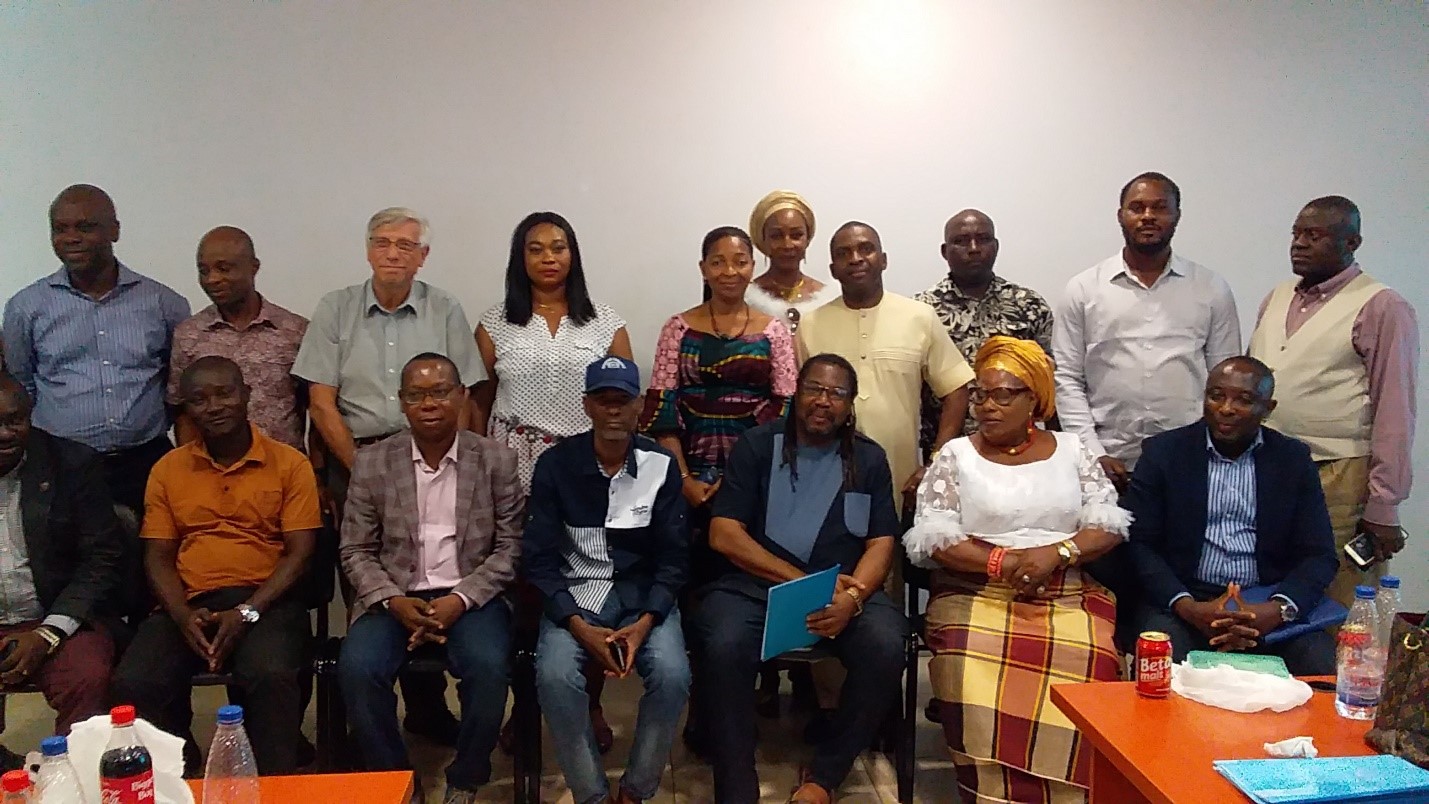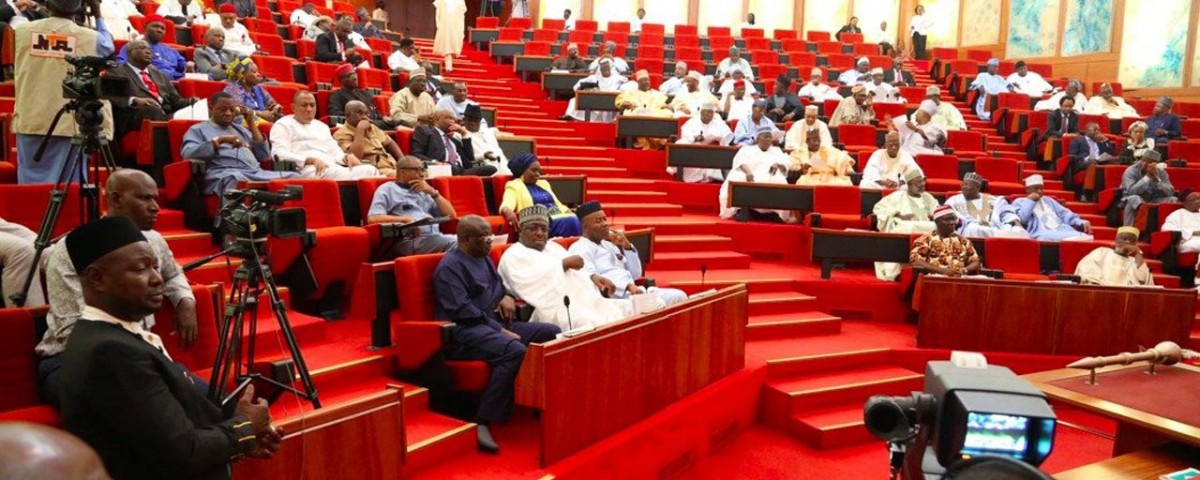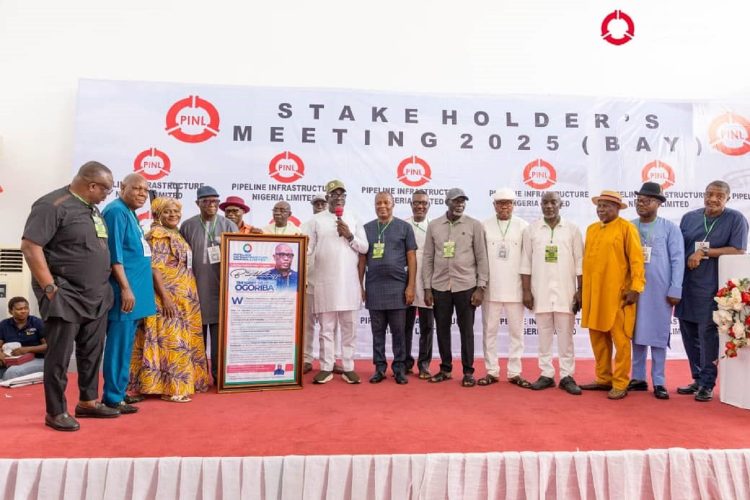
PIND trains 153 Fish Smokers, reaches 289 women and 45 million via Peacebuilding messages
November 20, 2019
BCC and Bodo Remediation Contractors Reach Agreement
December 20, 2019
Title: Protection from Internet Falsehoods and Manipulation and other Related matters Bill, 2019 (SB 132)
Bill Scope
- Individuals, organizations, internet service providers, technology companies, the Nigeria Communications Commission (NCC).
- False statements communicated to one or more end-users in Nigeria through the internet and on social media platforms such as Facebook and Twitter, as well as SMS and MMS.
- Criminal sanctions and penalties for false statements.
- The Police or any other law enforcement agency (depending on the specific provision) are empowered to order removal or corrections of false statements against public interest published online, and as well, direct NCC to order internet service providers to block access to online sites and accounts that transmit same.
Part 1 – Aims and Objectives of the Bill
- to prevent transmission of false statements/declaration of facts in Nigeria and enable measures to be taken to counter the effects of such transmission.
- to suppress the financing, promotion and other support of online locations that repeatedly transmit false statements/ declaration of facts.
- to enable measures to be taken to detect, control and safeguard against uncoordinated inauthentic behavior and other misuses of online accounts and bots.
- to enable measures to be taken to enhance disclosure of information concerning paid content direct towards a political end
- to sanction offenders
Part 2 – Prohibition of transmission of false declarations of fact
- Bill extends to deliberate acts by any person within or outside Nigeria to transmit certain statements of facts in Nigeria. Prohibited statement of facts includes:
- False statements of fact; and
- Statements that are likely to
- be prejudicial to the country’s security, public health, public safety, public tranquillity or finances
- prejudice to Nigeria’s relations with other countries
- influence the outcome of an election or referendum
- incite feelings of enmity, hatred towards a person, or ill will between a group of persons; or
- diminish public confidence in the performance or exercise of any duty, function or power by the government.
- The word declaration is used throughout the bill to refer to statements, and is defined to mean “any word, number, image, sound, symbol or other representation or combination of any of these.” A declaration of fact is a declaration, which a reasonable person seeing , hearing or otherwise perceiving would consider it to be fact, while a declaration is considered false if it is false or misleading, wholly or in part, on its own or in the context in which it appears. A declaration is transmitted if it is disseminated via the internet, MMS or SMS.
- Other prohibited offences
- Making or altering bots for transmission or enabling another’s transmission of false statements of fact. – Penalty – Fine not exceeding N200,000 fine or 3 years imprisonment or both
- Soliciting, receiving or agreeing to receive any financial or material benefit as inducement or reward to provide services for the transmission of false declaration of fact. – Penalty – for individuals – Fine not exceeding N150,000 or 2 years imprisonment or both
- for others – Fine not exceeding N500,000
- Penalty for transmitting false declarations i.e. making it available to one or more end-users
- for individuals – Fine not exceeding N300,000 or 3 years imprisonment or both
- for others – Fine not exceeding N10million
- The same penalties exist where an inauthentic account or robot is used to accelerate such transmission.
- Exemptions – Acts for the purpose of or incidental to the provision of:
- an internet intermediary service,
- a tele-transmission service,
- a service providing public internet access; or
- a computing resource service ( service that provides the use of any computer hardware or software to enhance the processing capability or storage capacity of a computer.)
Part 3 – Regulations dealing with transmission of false declaration of fact
- Provides for a law enforcement department (defined as the Police in the bill) to issue what is referred to as a “Part 3 Regulation.” This could be a “correction regulation” or a “stop transmission regulation” where a false declaration of fact has been or is being transmitted in Nigeria and the Police is of the opinion that it is in public interest to issue such regulation.
- A correction regulation is one issued to a person who has transmitted a declaration to issue a correction notice stating that a declaration made by them is false or to specify where the stated fact may be found. The person may 3 also be required to publish the correction in a newspaper or printed publication.
- A stop transmission regulation, just like the name implies, requires a person who transmitted a false declaration of fact to stop transmitting the subject by a specified time, to transmit a correction notice or publish such correction in the newspaper or other printed publication.
- A person transmitting a false decoration may be issued any of these two regulations whether or not they knew or had reason to believe the statement was false. Such person is also to bear any costs associated with compliance with such regulation e.g. newspaper publication.
- An appeal to the High Court against the order may be made, but only after the applicant has applied to the Police for a variation or cancellation and said request was refused.
- Penalty for non-compliance with a Part 3 Regulation
- for individuals – Fine not exceeding N 200,000 or 12 months imprisonment or both
- for others – Fine not exceeding N 5million
- That the person was acting under any law, contract or rule of professional conduct is not a defence to a criminal charge for non-compliance with a correction or stop transmission order. Also, that the person has applied to the court to vary or cancel a regulation is not a defence to a criminal charge
- Access blocking order
- The Police may issue an access blocking order directing the Nigerian Communications Commission (NCC) to order an internet service provider(ISP) to disable access by end-users in Nigeria to an online location where a false declaration is being transmitted. This applies to cases where there has been a failure by a person to comply with a regulation to correct or stop the transmission.
- ISPs that fail to comply can face criminal charges and are subject to a fine of up to N10million
Part 4 – Regulations for internet intermediaries and providers of mass media services
- Internet intermediary service here refers to any person who provides services that:
- allow end-users access materials originating from third parties on or via the internet;
- translates such materials to end-users on/through the internet; or
- displays to end-users, an index of search results which links to content hosted or stored at another location
- They include social network services, search engine services, content aggregation services, internet-based messaging services; and video-sharing services.
- Part 4 makes provision for any law enforcement agency (not restricted to Police) who feels that it is in public interest, to issue the following regulations to internet intermediaries, whose platform has been used to spread false statements. They include:
- a targeted correction regulation i.e. a correction notice issued through their service to all end-users who accessed the particular statement or subject material via their service.
- a disabling regulation, which requires that the internet intermediary disables end-users’ access to the content, and,
- a general correction regulation directed to a prescribed internet intermediary to transmit a correction notice via its intermediary internet service.
- Penalty for non-compliance
- for individuals – Fine not exceeding N 300,000 or 12 months imprisonment or both
- for others – Fine not exceeding N 5million
- Access blocking order can also be issued for internet intermediaries that fail to comply with issued regulations. This involves the law enforcement agency directing NCC to order an ISP to disable access to the online location where the statement was published. The provider can incur fines between N 1million and N 10million for failure to comply. An aggrieved party may apply to the High Court for redress, but only after a request for variation or cancellation of the order to the law enforcement agency has been first made.
Part 5 – Declaration of Online Locations
- Online locations where three or more different false statements have been transmitted, may be declared as a “declared online location” by the law enforcement agency (Police). This will require that the owner or operator of such online location informs its end-users that its platform is the subject of such declaration.
- Penalty for non-compliance
- for individuals – Fine not exceeding N 500,000 or 3 months imprisonment or both for others – Fine not exceeding N 5million
- Access to the declared online location may also be blocked or disabled.
- Restrictions are also placed on transmitting paid content or digital advertising on such platforms.
- The Police may make regulations necessary for implementing this law.
DOWNLOAD THE BILL BELOW
Source: DNL Legal & Style. View the original









